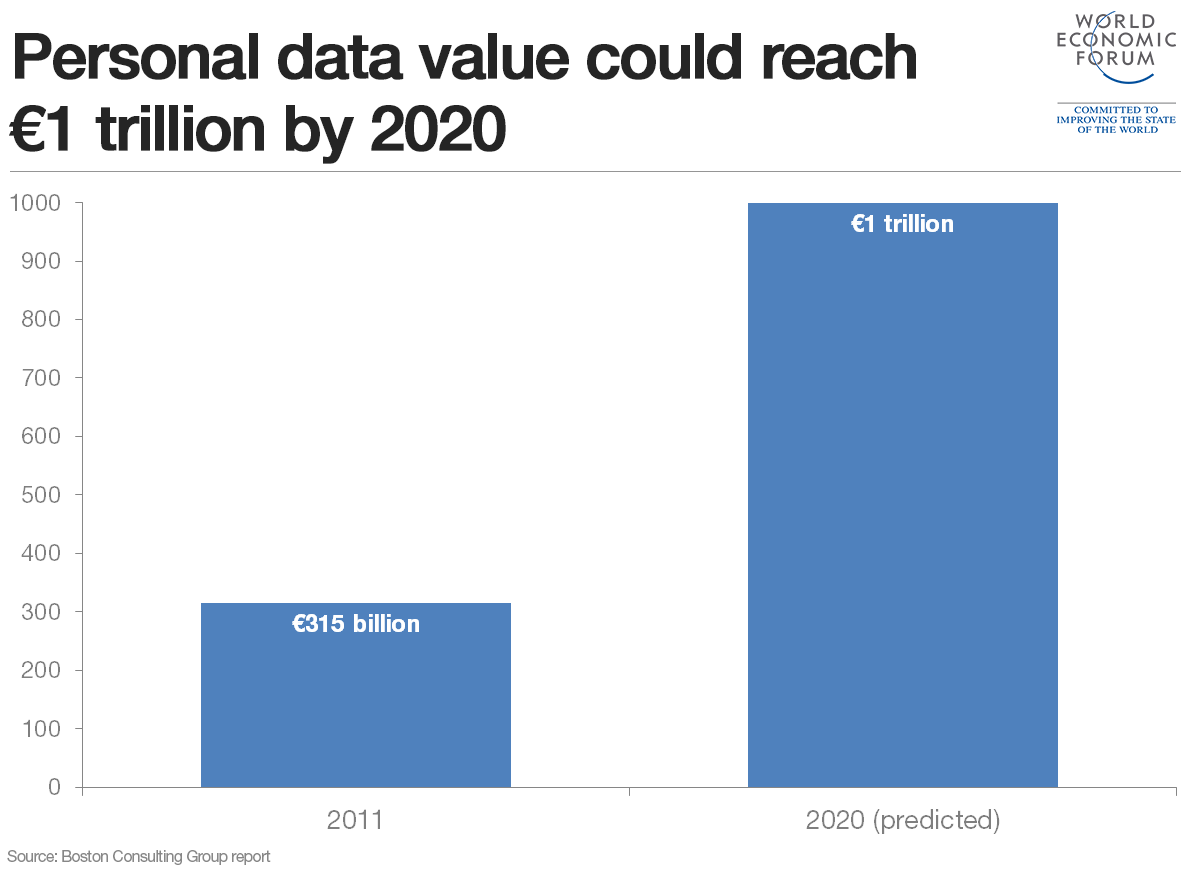We need a new era of data responsibility

Mass data breaches have raised questions about how to limit the risks of the digital age. Image: REUTERS/Kacper Pempel

Get involved with our crowdsourced digital platform to deliver impact at scale
Stay up to date:
Cybersecurity
Every minute of every day, every action, reaction, decision, event and process is being expressed as data – data that is collectable and yielding knowledge.
For consumers, it’s made daily tasks simpler and easier. From knowing what movie you want to watch, to the app providing real-time weather and traffic patterns along your commute, data is seamlessly integrated into our everyday lives.
For businesses, data is now the key to competitive advantage. And here’s the crucial fact: only 20% of the world’s data is searchable – which means 80% of the data out there is sitting on private servers, most of them in businesses. The potential value this data holds is immeasurable. When unleashed by new technology like artificial intelligence, it is helping businesses develop deeper insights, make exponentially better decisions and engage customers as never before.
But we mustn’t confuse data with wisdom. Expert understanding of processes, industries and fields of knowledge is required to make sense of the data that matters for business and society.
Living in a data-driven world means there’s more risk than ever that personal information will be stolen, that bad actors will use this data to target individuals for crimes or false news. In 2017, the challenges of the data economy – from mass data breaches to the intentional manipulation of online platforms – captured global attention and raised questions about how we can tap the full benefits of this new world while limiting the risks.

That can only happen through a broad commitment to responsibility by all of us. For companies and governments, responsibility means protecting the data you own, manage, store or handle. It means employing strong encryption and security strategies – and constantly challenging and evolving them. And when a new cyber threat emerges, business and government must share information quickly to blunt its impact. The bad guys are well organised; we must be too. Responsible sharing is the only way to prevent and mitigate today’s threats.
Responsibility also means being transparent about data practices. We must be clear about who owns data and the unique insights it generates. Companies must be clear with their customers, and governments with their citizens, when they ask them to give up ownership of their data.
IBM, for example, will not provide client data to any government’s surveillance programme. We support our clients’ choices on where their data is stored. And we ensure their data doesn’t go anywhere without their consent.
When it comes to the new capabilities of artificial intelligence, we must be transparent about when and how it is being applied and about who trained it, with what data, and how. Does it reflect professional expertise? Are unintended biases built in? We must explain why its algorithms make the decisions they do. If a company can’t do that, their products shouldn’t be on the market.
Lastly, we also have a responsibility to make sure that new waves of technology don’t leave anyone behind. That means investing in modern skills training to ensure the global workforce has the knowledge and experience to work in partnership with technologies like AI or blockchain, and is prepared for the “new collar” jobs this era will create. That means building a new paradigm for education that includes strong linkage between jobs and school, a renewal of focus on apprenticeships, and lifelong learning beyond the diploma.
The data + AI economy is paving the way for new innovations, broadened access to opportunity and solutions to some of society’s most pressing problems. That’s why I’m urging all my fellow leaders in business and government to adopt principles of data stewardship and transparency such as those I’ve mentioned. IBM lives by them, and we believe they are critical in earning the public’s trust. Working together, we can build trust in the digital economy and truly unleash its potential.
Don't miss any update on this topic
Create a free account and access your personalized content collection with our latest publications and analyses.
License and Republishing
World Economic Forum articles may be republished in accordance with the Creative Commons Attribution-NonCommercial-NoDerivatives 4.0 International Public License, and in accordance with our Terms of Use.
The views expressed in this article are those of the author alone and not the World Economic Forum.
Related topics:
The Agenda Weekly
A weekly update of the most important issues driving the global agenda
You can unsubscribe at any time using the link in our emails. For more details, review our privacy policy.
More on CybersecuritySee all
Spencer Feingold and Johnny Wood
April 10, 2024
Deryck Mitchelson
April 3, 2024
Akshay Joshi
March 21, 2024
Scott Sayce
February 22, 2024
Akshay Joshi
February 21, 2024
Kate Whiting
February 21, 2024






